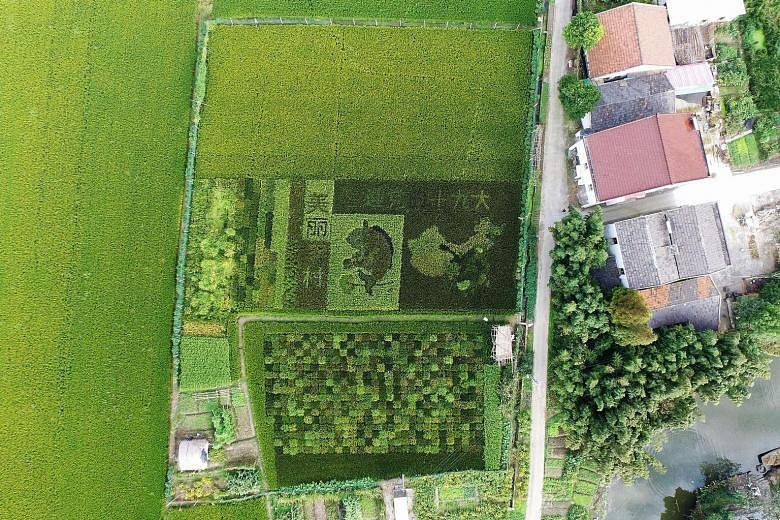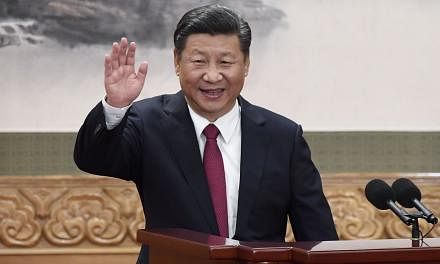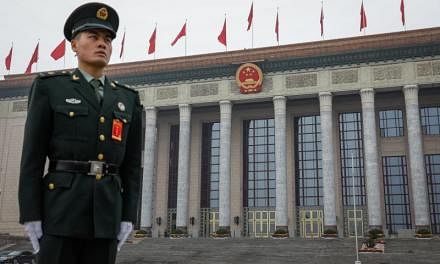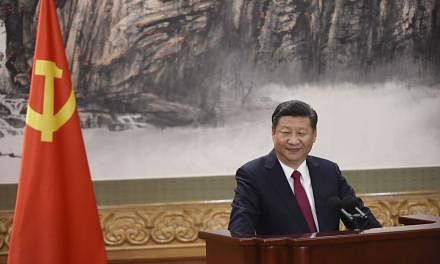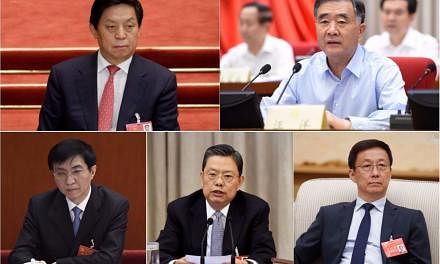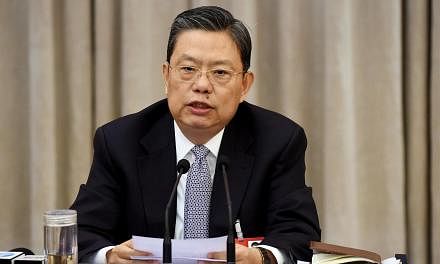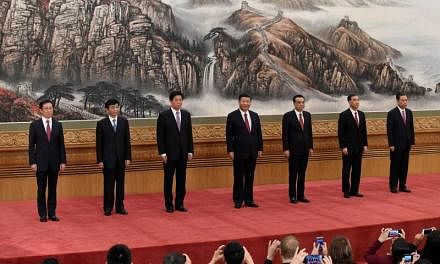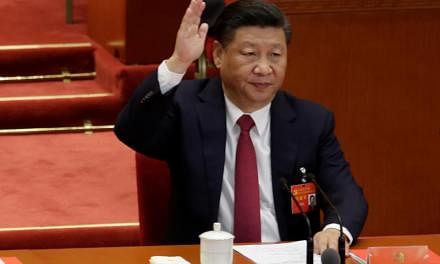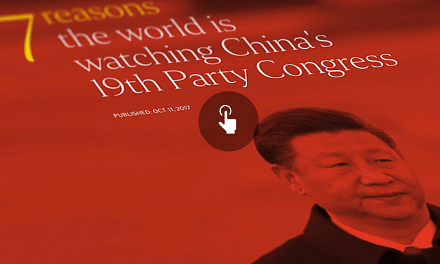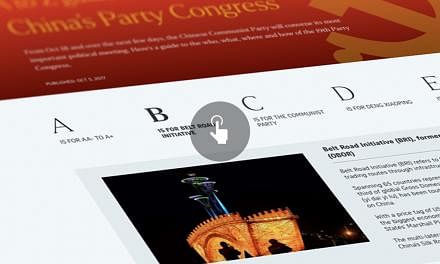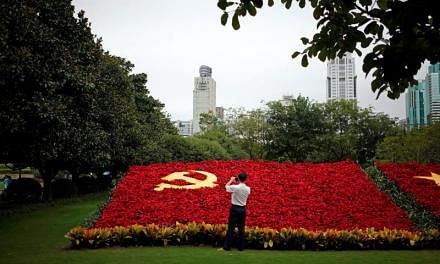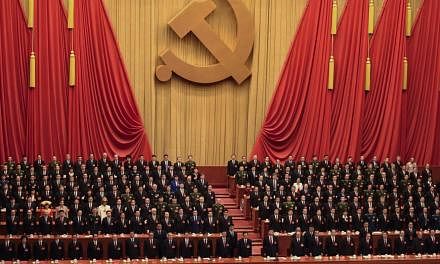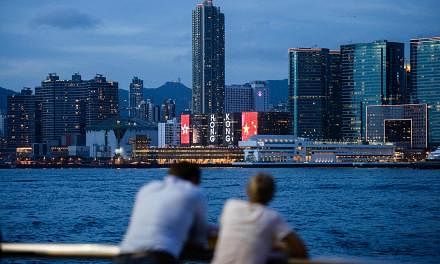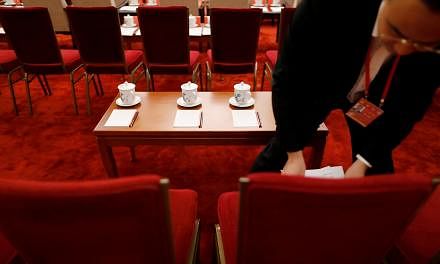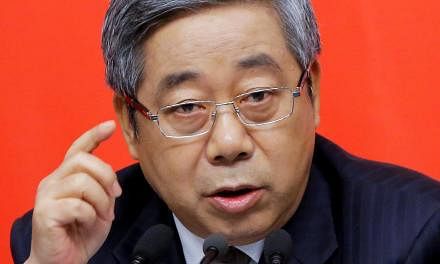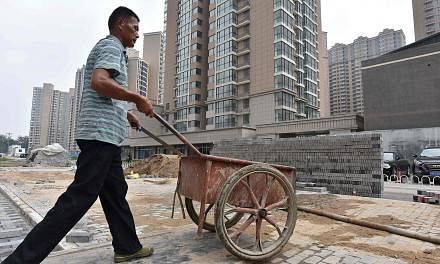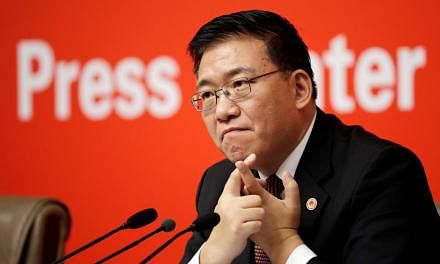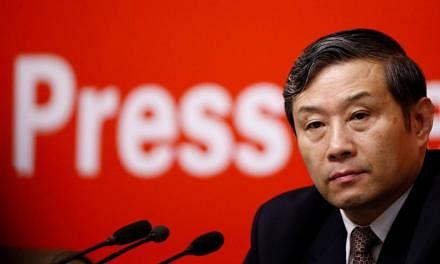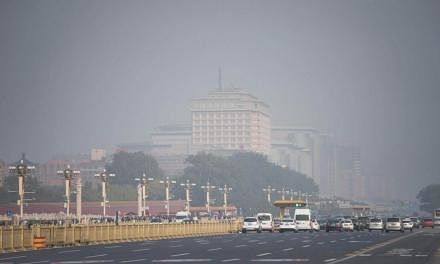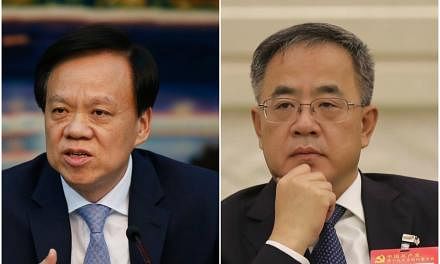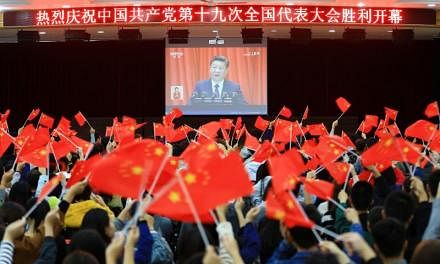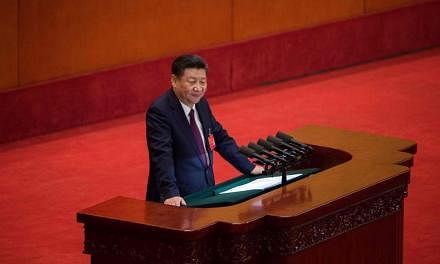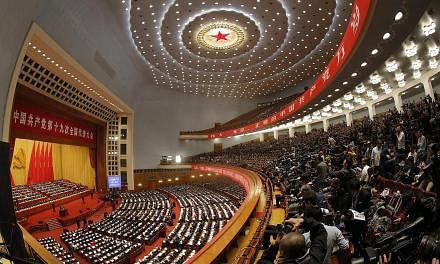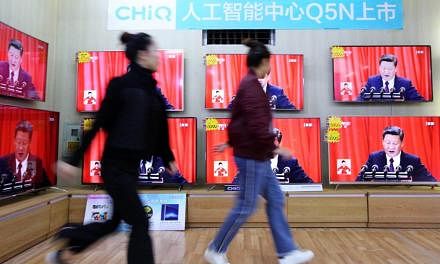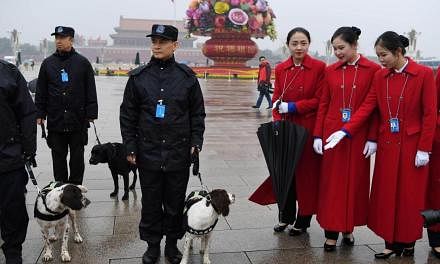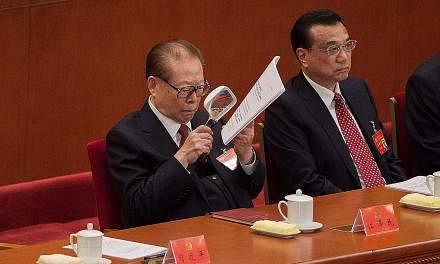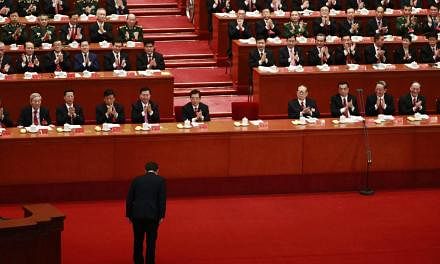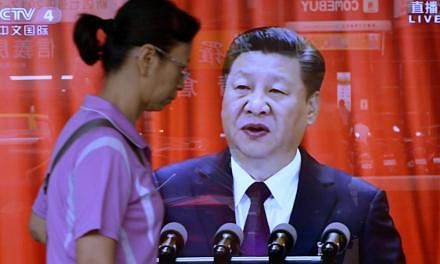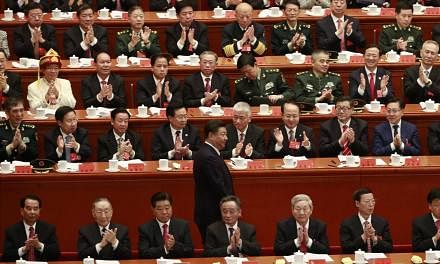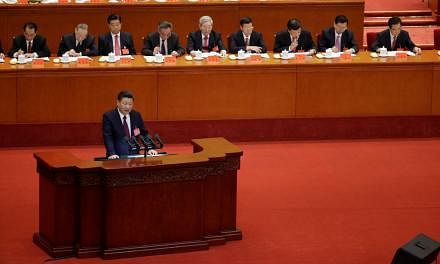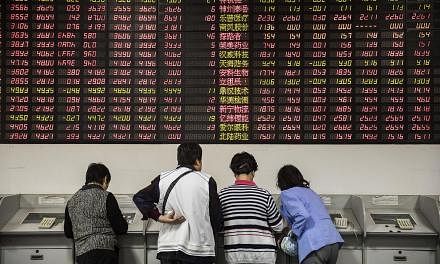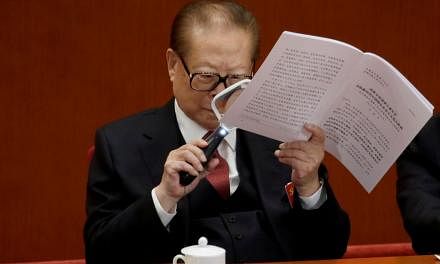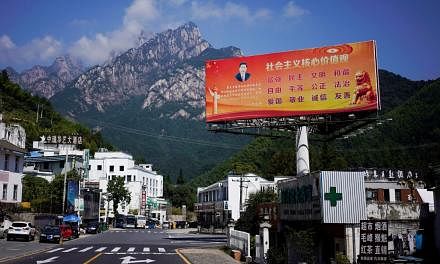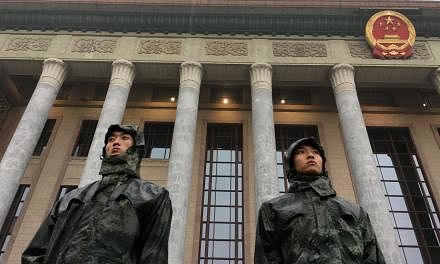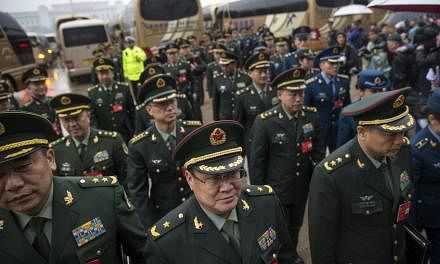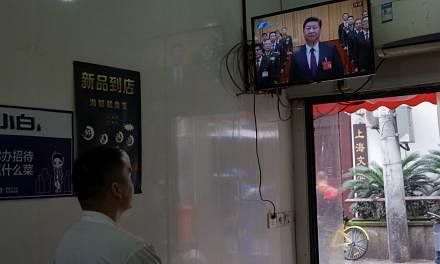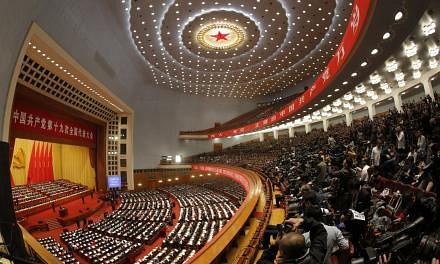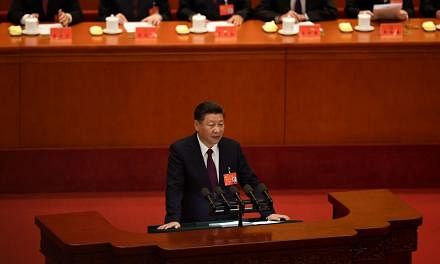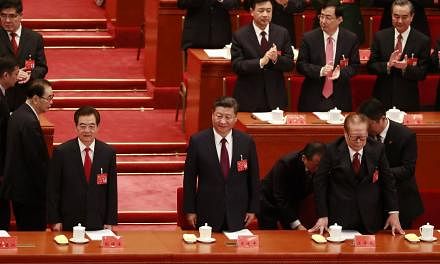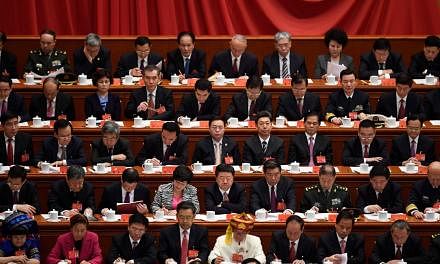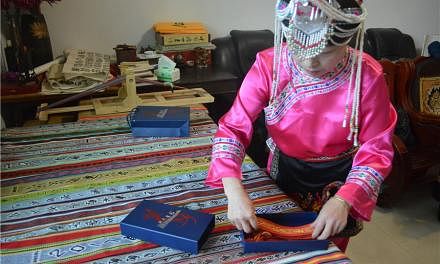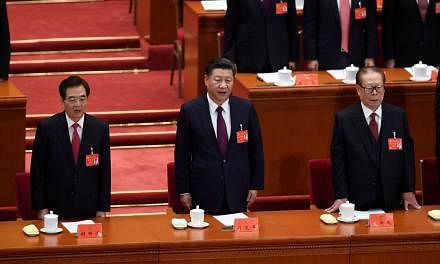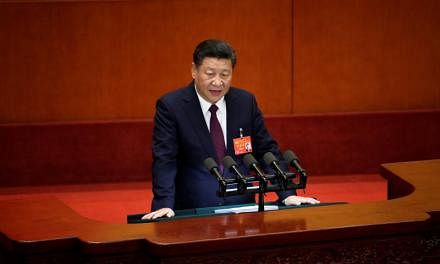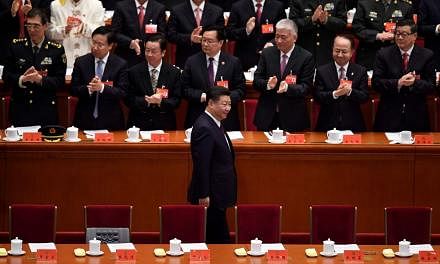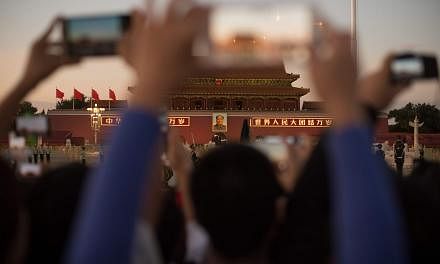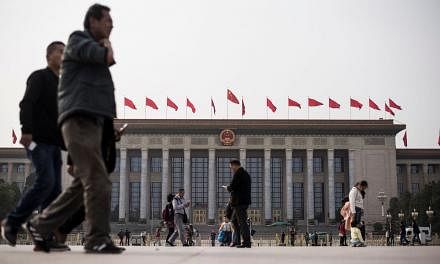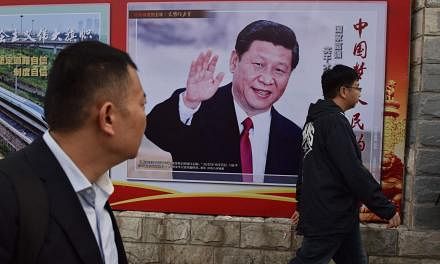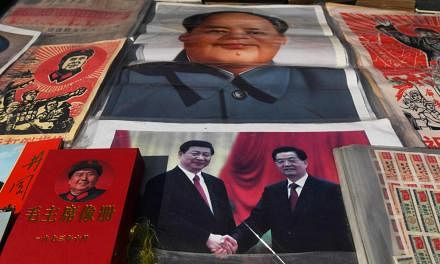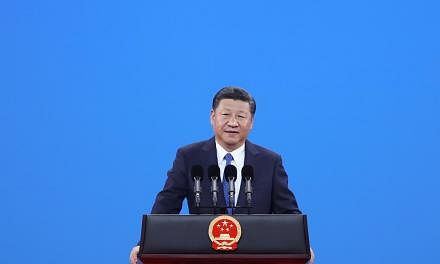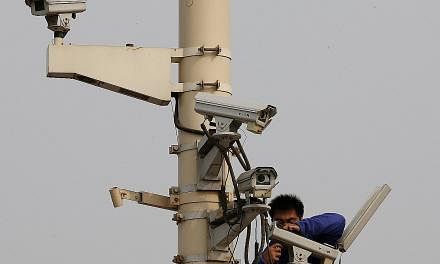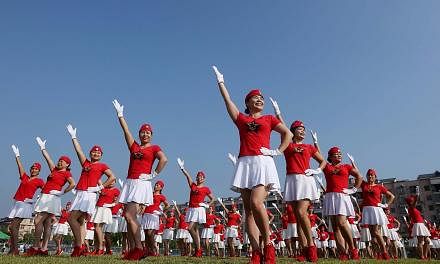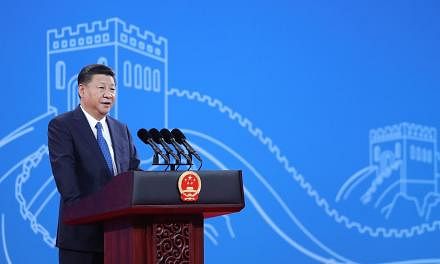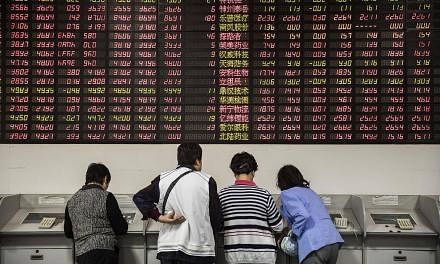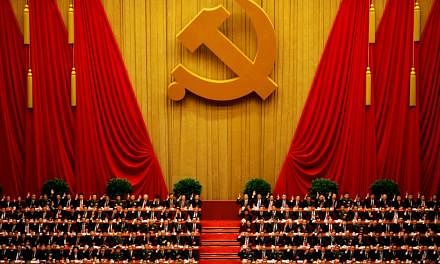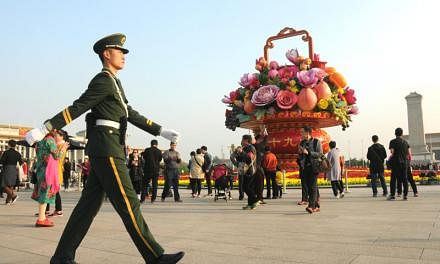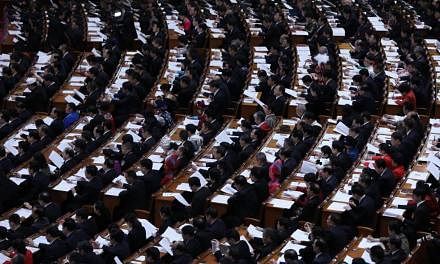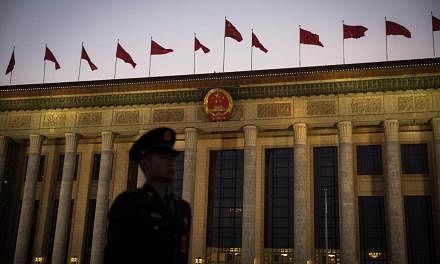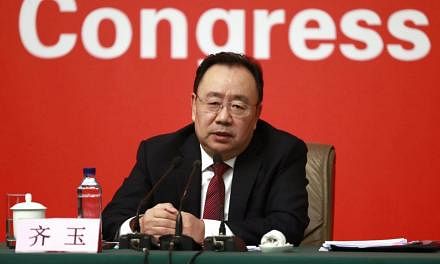With President Xi Jinping, one of China's strongest leaders of the modern era at the helm, the country has been assertive and, at times, even aggressive in its behaviour towards the region and the world.
Mr Xi looks set to expand China's role as a major world leader after the 19th national congress of the Chinese Communist Party next week, where he is expected to further strengthen his power.
This assertiveness has also allowed China to play a broader and more effective role on the world stage and increase its footprint geo-economically in places within its neighbourhood and as far away as Africa and Latin America, said Professor Shi Yinhong of Renmin University.
And this active expansion in China's diplomacy is unlikely to change in the foreseeable future, he said.
This is because the factors leading to it, despite the greater challenges, difficulties and risks that will come with the increased activity, will only become stronger.
One of the drivers of China's new assertiveness is its national strength, which has grown militarily and economically, Prof Shi said.
Another is that the Chinese people's self-confidence has increased markedly.
"Xi has... demonstrated that he is a decisive leader, stronger than his predecessor and determined not only to manage China but to transform it to meet huge unsolved challenges, primarily at home but also abroad," wrote Dr Jeffrey Bader of the Brookings Institution.
The China under Mr Xi also has new capabilities, as Prof Shi pointed out, and new needs and interests. It is the world's second largest economy and its largest trading country.
It is also the largest manufacturing nation globally and sits in the middle of a regional manufacturing hub.
Its military, after two decades of double-digit budget growth, has developed stronger capabilities, commissioning its first aircraft carrier in 2012, among other things.
China, from its opening up and reforms beginning in 1978, has been a beneficiary of the international order, becoming more integrated with it as its economy became more intertwined with those of the rest of the world.
However, wrote Professor Tony Saich of the Harvard Kennedy School: "Powerful countries shape the world and, whether they like it or not, China's new leaders will be forced to take a more active stance not just on questions of territorial sovereignty but also ones of reserve currencies, banking and financial regulations, trade and investments, climate discussions, the provision of public goods, etc."
Thus, while China under Mr Xi participates fully in major institutions of the international order such as the World Bank, it has also sought to influence that order, for example, by starting the Asian Infrastructure Investment Bank.
Still, wrote Professor Francois Godement of the European Council of Foreign Relations, China has "deep and unacknowledged interests in maintaining a stable order because of its integration in the global economy".
"A disruption to that order would - by necessity - be a disruption to its own economic interests," Prof Godement wrote.
Mr Xi now faces opportunities and challenges brought about by a more isolationist United States and a Western world grappling with a backlash against globalisation.
He has shown China's readiness to step into the space left by the US, saying at the World Economic Forum in January this year that the world "must remain committed to developing global free trade and investment, promote trade and investment liberalisation and facilitation through opening up and say no to protectionism".
Yet, at last month's Brics summit that gathered leaders of the world's major emerging economies - Brazil, Russia, India, China and South Africa - Mr Xi sought to galvanise the grouping to play a more influential role in shaping the international order.
"We need to speak with one voice and jointly present our solutions to issues concerning international peace and development," he said, adding: "This... will help safeguard our common interests."
China's efforts to shape the world into something more to its liking will only continue after next week's party congress that will showcase Mr Xi's achievements of the past five years and determine the direction of his leadership for the next five-year term.
